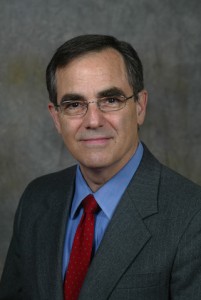 One of the many benefits MWA-NY offers its members is access to the experts who pursue the perpetrators and solve the crimes we write about. We asked a few of those experts to tell us about their work in law enforcement and forensics. (And don’t forget to check the MWA-NY Event Calendar for upcoming programs.)
One of the many benefits MWA-NY offers its members is access to the experts who pursue the perpetrators and solve the crimes we write about. We asked a few of those experts to tell us about their work in law enforcement and forensics. (And don’t forget to check the MWA-NY Event Calendar for upcoming programs.)
Today, we’re featuring Robert Leonard, the director of Hofstra University’s graduate program in forensic linguistics. Leonard has consulted on many high profile cases, including the Taye Diggs-Idina Menzel arson letters, the Melanie McGuire “suitcase” murder, and the John Karr episode of the JonBenet Ramsey investigation. His work is featured in the Forensic Files episode “A Tight Leash.” He spoke to our members about forensic linguistics at our dinner meeting in April.
What made you want to be a forensic linguistics expert?
When I was an undergraduate, I earned money for school as a forklift operator, then running a student moving company, and then—being a rock star! My brother transformed my college singing group into the group Sha Na Na. We opened for Jimi Hendrix at Woodstock. Rock ‘n’ roll ignited my interest in forensic linguistics. Analyzing my group’s recording contract, I proved we weren’t receiving money due us: my first forensic linguistics gig.
What’s in your go kit?
The core tools and competencies of scientific linguistics, including phonetics, phonology, morphology, syntax, semantics, pragmatics, conversation analysis, corpus linguistics, dialectology, and sociolinguistics. These serve as the basis of linguistic analysis.
Who’s on your team?
Professor Tammy Gales, my partner in crime (so to speak), directs research at the Forensic Linguistics Institute at Hofstra. She specializes in various linguistic aspects of assault cases, false confessions and threatening communications, and is an expert in corpus linguistics, the computer analysis of large sets of language behavior. She has conducted forensic linguistic training of federal and regional law enforcement agents within the U.S. and Canada. We worked together on the Justice Sonia Sotomayor plagiarism case, the Coleman triple homicide, Apple’s App Store, and innumerable other cases.
Roger W. Shuy, distinguished research professor of linguistics, emeritus, at Georgetown University, is my partner and mentor. Known as the foremost forensic linguist in the United States, he has consulted on some 600 cases. He has testified as a linguistics expert witness 54 times in criminal and civil trials in 26 states, as well as before the U.S. Senate and House of Representatives in impeachment trials of senators and federal judges, and in International Criminal Tribunal trials. He has written numerous books on forensic linguistics. His book The Language of Murder Cases is one of my favorites (maybe because he dedicated it to me!). It discusses some of the cases we worked on together, including two solicitation to murder cases and a knifing death in which the suspect’s rights during interrogation were not respected.
What’s one thing most people don’t know about being a forensic linguistics expert?
How much fun it can be. It can be terribly hard work, and you must keep up an awareness of the smallest details, but it is wonderful fun to solve the puzzle.
What’s the most important thing you want crime writers to get right about your job?
That what almost always carries the day is patterns. Not single clues; not smoking guns. But smoking guns can lead you to discover the patterns.
—Interview by S.A. Solomon
